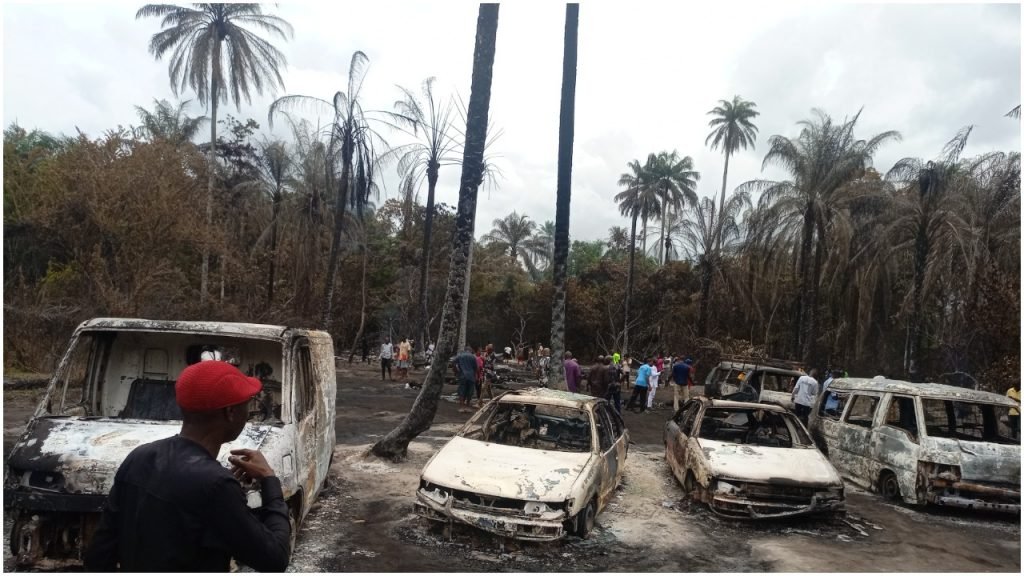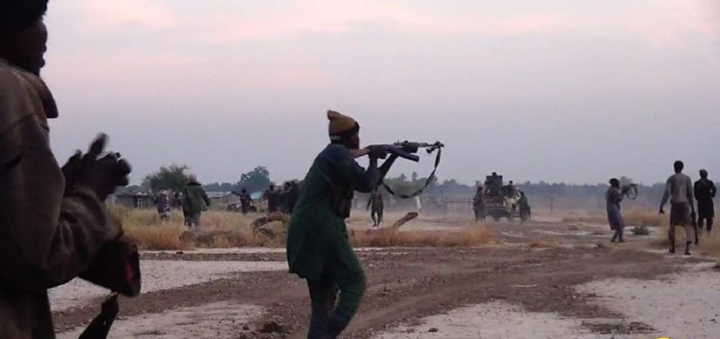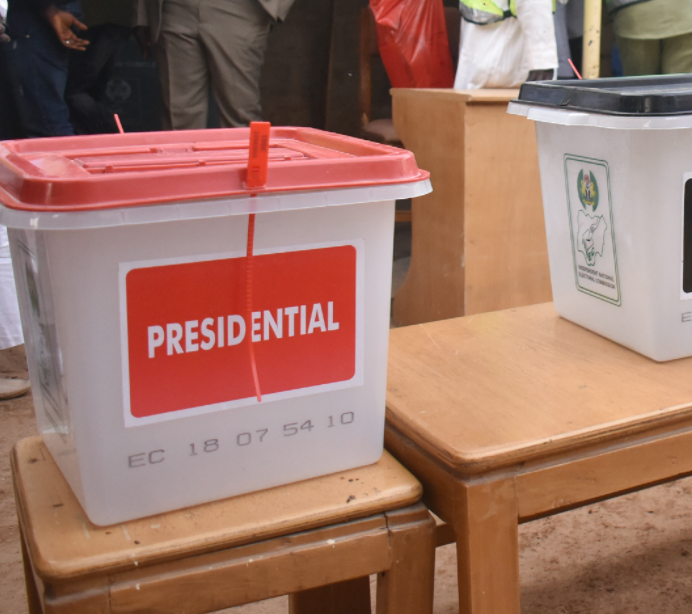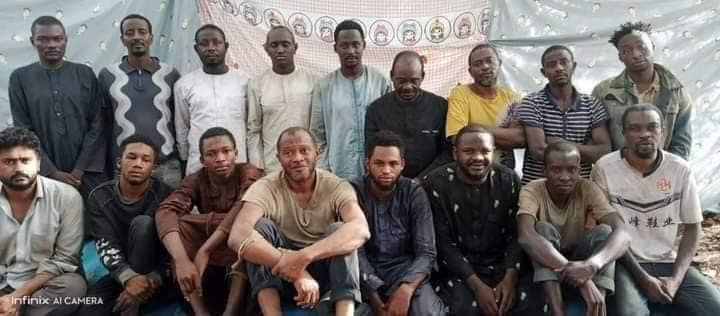Too many tragedies have befallen Nigerians in a short space of time. Right before our eyes, we see many deaths happen, most of which are as a result of crime, negligence and failure of security agencies, government and the general society.
Just at the weekend, more than 100 Nigerians lost their lives in an explosion that happened at an illegal refinery at the border of the Ohaji-Egbema local government area of Imo state with Rivers state. I do not want to believe that government officials and security agencies did not know about the existence and daily function of this refinery.
No small boy or novice can own or run a refinery whether it be makeshift, legal or illegal. It is not a business for the poor or unconnected. The number of deaths that occurred in that explosion only tells us how robust the refinery was. Over a hundred people died in just one explosion that happened inside the bush is an indication that that place is a huge industry producing illegal products.
At least five vehicles were also destroyed by the fire which is arguably one of the biggest catastrophes that have happened in that field in the country. Among the over 100 people who lost their lives were workers, buyers, sellers, food ad drinks vendors, and local security men among others. Only a large flourishing company can bring such a large number of people together in one place at a time.
Advertisement
Some years ago, I paid a visit to a family member living in the Isawo area in Agric, Ikorodu, Lagos. I passed the night there and would leave as early as possible the next morning. I woke up before 5am, got dressed and got on my way at about 5:30 am. What I noticed on my way out really surprised me.
Getting to one junction, I saw some motorbikes, popularly called okada, carrying jerrycans riding to and fro a secluded road. I observed that the ones going in were carrying empty jerrycans while the ones coming out were already filled and heading for delivery. Aside from okada, I saw buses, pickup trucks, and even cars that can be used for such business all coming out of the area. The area was oozing with petrol.
Already, I had been told by my host not to come to visit when it was late, hence why I was not allowed to leave that same day. The reason was that some boys, who work at an illegal bunkering site, always engage in a fight, causing panic in the community. They even kill themselves on some occasions. My host told me that as I was going out I should watch out for a burnt Volkswagen (danfo) bus, which was conveying fuel from the site but caught fire just a few metres away.
Advertisement
I learnt that police in Agric know about the illegal bunkering site but are always settled with proceeds from the trade. Some policemen always set a roadblocks every morning, as early as 4 am, in a bid to force transporters to pay more money before moving their products out of the community.
From time to time, Lagos police from the headquarters will go and carry out a raid, but even before their arrival, boys at the site must have been tipped off and taken cover until the dust settles. This is what happens every day across Nigeria.
So I ask, can Nigeria completely get rid of illegal bunkering and refineries?
It is believed that the country loses about 200,000 barrels of petrol a day to illegal bunkering and refineries. That number amounts to more than 10% of the total daily crude oil of the country estimated at 1.5 million barrels. In 2019 alone, Nigeria lost more than 40 million barrels valued at $2.77 billion.
Advertisement
With this huge investment and profits gotten from the illegal refinery business, can we still say some top government officials are not involved in it? Is there a possibility of putting a complete stop to the business? Can the government be sincere enough to give all it takes to achieve that?
This is not the first time the lives of Nigerians will be wasted in large numbers by illegal refinery explosions. At least 25 people, including some children, were killed in a similar explosion and fire at another illegal refinery in Rivers state in October 2021.
In October 1998, a pipeline blast in the southern town of Jesse killed more than 1,000 villagers, with the government blaming the disaster on oil thieves.
In Rivers state alone, there are more than 142 illegal refineries operating. Though most of them have reportedly been destroyed, it still has not stopped the booming business. If just one state can amass such a number of illegal refineries, what would be the figure in Delta, and other oil-producing states?
Advertisement
But the reason for the growing menace of the illegal refineries is not far-fetched; host communities are left impoverished while international oil companies are cashing out big time. I have been to some communities in some of the oil-producing states, and I was left bemused by the poor or no development at all in those communities.
I was in a Delta state community some few years back, where the solar street light has collapsed for many years for lack of maintenance and nothing was done to fix it. Their roads are in a terrible state just like their electricity. Youths in these communities are jobless with no better choice than to be involved in crimes. Yet the government, community heads, state officials and oil companies, both local and international, make huge returns from crude oil derived from these communities.
Advertisement
If we must put a stop to the destruction of lives and properties, the government and oil companies must focus on the human and capital development of these communities. Basic social amenities should be as normal as drinking a cup of water. Their schools must be equipped with standard facilities and also made affordable for the common man.
The government must arrest and probe all bigwigs involved in the illegal business, they can’t tell me they don’t know them.
Advertisement
However, I will like to end with a quote from Rivers State governor Nyesom Wike in February 2022 where he said: “The federal government could not stop oil bunkering here because security men were involved. Police was involved, civil defence was involved, army was involved, navy was involved. So, nobody would be able to stand firm to end it.”
Israel is a Nigerian journalist and can be reached via [email protected]
Advertisement







